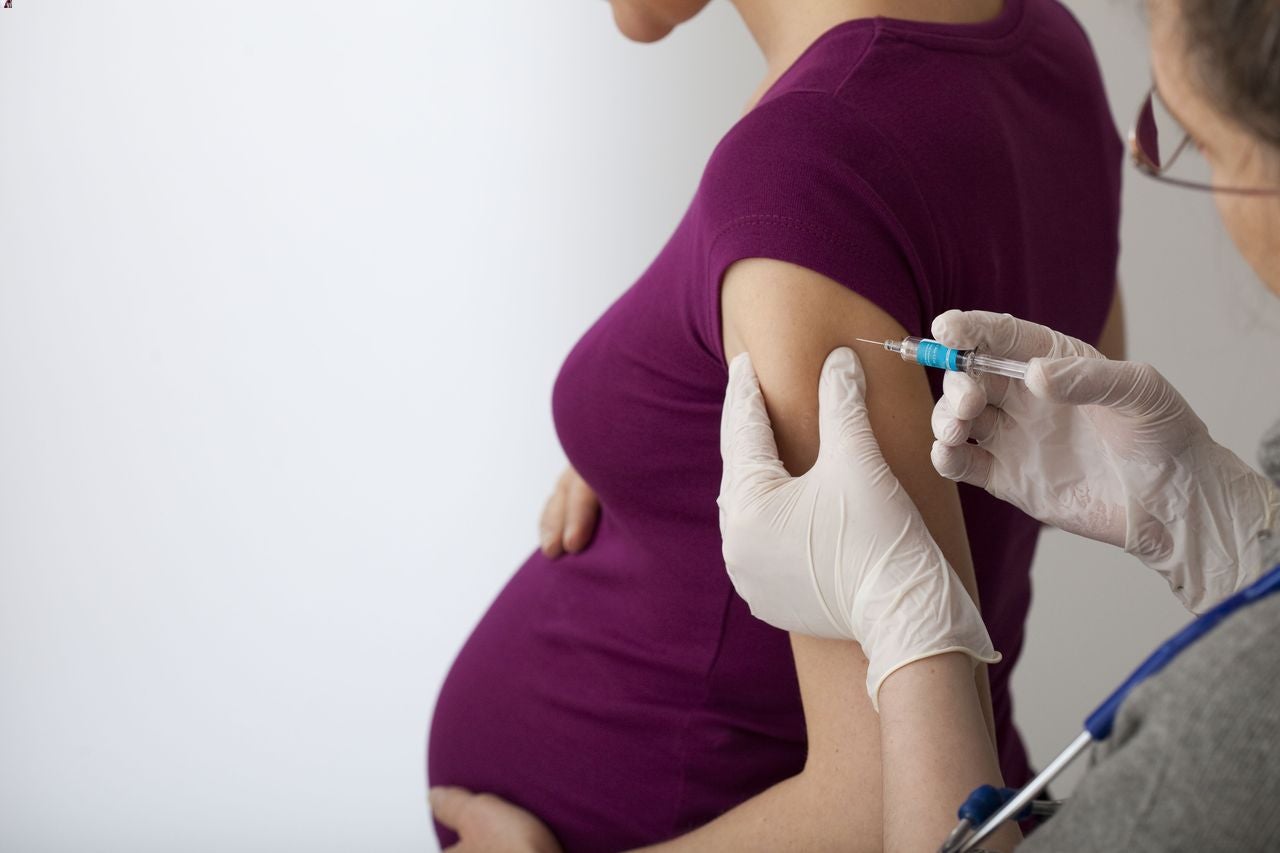Pfizer‘s respiratory syncytial virus (RSV) vaccine Abrysvo (RSVpreF) has received FDA approval for the prevention of lower respiratory tract disease (LRTD) and severe LRTD caused by RSV in infants from birth up to six months of age by active immunisation of pregnant individuals at 32–36 weeks gestation.
This follows Abrysvo’s initial FDA approval in May this year for the prevention of LRTD caused by RSV in individuals 60 years of age or older. The label expansion marks the first regulatory approval for a maternal RSV vaccine anywhere in the world and also comes just weeks after AstraZeneca and Sanofi‘s monoclonal antibody (mAb) Beyfortus (nirsevimab) received FDA approval for the prevention of RSV LRTD in babies and toddlers. These therapies have the potential to considerably reduce the burden of RSV infection among young children ahead of the 2023/2024 season.
RSV is a viral respiratory illness that is extremely common in young children. GlobalData epidemiologists project seroprevalence among 2-year-old children in the US to be around 94% in 2023, amounting to an affected population of 3.9 million and indicating that the vast majority of children are infected with the virus in the first two years of life. RSV often causes mild, cold-like symptoms, but it can also lead to more serious LRTD, such as pneumonia and bronchiolitis and can be life-threatening. This is particularly true for vulnerable patient cohorts such as preterm infants and infants with congenital muscular, respiratory, or cardiovascular disease.
The first six months of life represent a major susceptibility window for RSV. Children who become infected at this age have an increased likelihood of experiencing severe illness, hospitalisation and death compared to older children.
This underlines the importance of RSV prophylaxis for this age cohort. However, prophylactic treatment options to date have been relatively limited. AstraZeneca’s anti-RSV mAb Synagis (palivizumab) has been used to prevent RSV in pediatric patients for nearly 25 years. However, usage is limited to high-risk infants due to its high cost and inconvenient dosing schedule (once monthly during the RSV season). Beyfortus works by a similar mechanism to Synagis but has the advantage of an extended half-life, which means that a single dose can provide protection for an entire RSV season (approximately five months).
Beyfortus will be available in the US ahead of the upcoming 2023/2024 season and the Centers for Disease Control and Prevention (CDC) has recommended routine use of the mAb in all infants below eight months of age born during or entering their first RSV season and in high-risk children aged 8–19 months of age entering their second RSV season. This means that more than one million infants will now be eligible to receive RSV prophylaxis in the first few months of life when they are most vulnerable to complications of the infection.
While Beyfortus can be administered to infants at the beginning of the RSV season, or at birth for those born during the RSV season, the greater advantage of the maternal vaccine Abrysvo is that it induces the production of antibodies that are transferred transplacentally to the fetus. The CDC has not yet provided recommendations on the usage of Abrysvo among pregnant individuals. However, key opinion leaders (KOLs) interviewed by GlobalData in 2021 emphasised that maternal vaccines and prophylactic mAbs could play important complementary roles in reducing the burden of RSV among the pediatric population.
For example, while a maternal vaccine that provides protection from birth represents a great advancement for the field, vaccine hesitancy could present a challenge to widespread uptake. KOLs note that vaccine hesitancy can be high among the pregnant population, citing challenges in administering currently recommended vaccines such as influenza, to pregnant people.
Additionally, Abrysvo’s window of usage is relatively narrow as the vaccine is only approved for use between 32 and 36 weeks of gestation. This leaves infants born before 32 weeks gestation unprotected, despite the fact that preterm infants have an increased risk of severe RSV compared to full-term infants. In such scenarios, Beyfortus will play an important role in filling the gaps that maternal vaccination cannot cover.
Owing to the recent FDA approvals of Beyfortus and Abrysvo, healthcare providers in the US now have much better resources at their disposal to protect young children against RSV. This is likely to reduce the burden of RSV on the healthcare system for the upcoming season.







